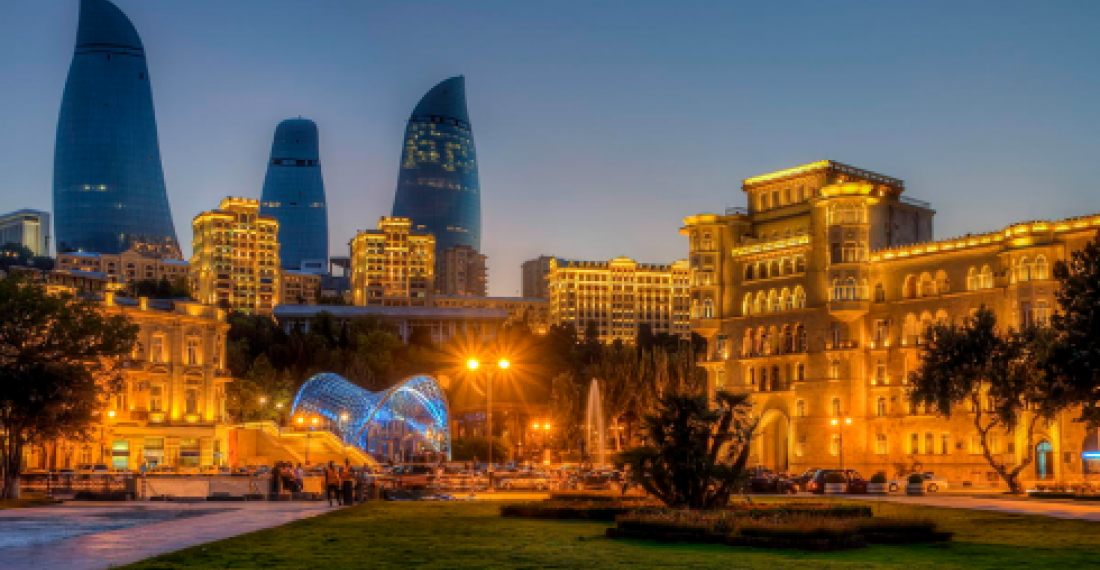Inaccuracy of the voters list, restrictive political environment, and absence of a genuinely competitive contest, were some of the issues raised by interlocoteurs of the OSCE-ODIHR Election Observation Mission ahead of the forthcoming presidential election in Azerbaijan, according to the Mission's interim report published on 29 March.
ODIHR - the Office for Democratic Institutions and Human Rights of the OSCE has deployed an Election Observation Mission (EOM) on the forthcoming presidential elections in Azerbaijan which will be held on 11 April 2018. The Mission opened with a press conference in Baku on 9 March. The Head of Mission is Corien Jonker from The Netherlands. The Mission consists of a core team made up of 10 staff from 7 participating States and 30 long-term observers seconded from participating states who are deployed throughout the country.
The OSCE Parliamentary Assembly and the Parliamentary Assembly of the Council of Europe have announced that they will deploy observer delegations for election-day observation. The OSCE Chairperson-in-Office has appointed Nilza de Sena as Special Co-ordinator and leader of the short term OSCE observer mission for this election.
The ODIHR EOM interim report flags up a number of issues that the report says were raised during meetings with what it described as the Mission's "interlocoteurs". These issues can be grouped in three clusters - the legal and administrative framework, the political context, and media reporting and election scrutiny.
The report says that the election is administered by the Central Elections Commission, 125 Constituency Election Commissions (ConECs) and around 5,400 Precinct Election Commissions (PECs). The report says that "Election commissions appear professional and well-resourced. PECs have been trained."
But the report raises issues regarding the accuracy of the voter's list. It says:
"Voter lists are available online and were also displayed for public scrutiny. Voters can request corrections. While election officials informed the ODIHR EOM that their efforts led to accurate voter lists, other interlocutors noted a large discrepancy between the number of registered voters and the number of citizens of voting age."
In a footnote the report says that according to data from the State Statistics Committee from 2017 there are more than 7.1 million individuals of voting age. This is nearly two million more than the number of people registered as of 21 March which amounted to 5,192,063.
The report says that ten candidates submitted the necessary paperwork to be registered. Two were not registered because they failed to collect enough signatures to be nominated as required by law. They did not appeal this decision. Eight were eventually registered, and will appear on the ballot paper. The report says:
"Many ODIHR EOM interlocutors said they do not expect the election to be genuinely competitive, claiming that those who stand against the incumbent in this election either do not present a political alternative, or even actively support him. Several opposition parties are calling for a boycott of the election, saying that they will not participate in an election that takes place in what they consider a non-competitive environment. Other parties do not participate in the election arguing that the early election date gives them insufficient time to participate in a meaningful way. ODIHR EOM interlocutors from YAP criticized the reasons provided by the opposition, noting that they would have known that elections would take place at some point in 2018."
It adds,
"Several interlocutors informed the ODIHR EOM about restrictions they face in terms of freedom of assembly and association, and some of them shared that they are under continuous police surveillance."
The report also refers to the issue of Ilgar Mammadov saying that one political movement noted that he "is prevented from running in the election despite judgments of the European Court of Human Rights (ECtHR)".
The report says that whilst "freedom of expression, media freedom and the right of access to information are guaranteed in the Constitution "ODIHR EOM interlocutors have expressed concerns about the number of journalists and bloggers who are currently serving prison sentences on charges that are seemingly unrelated to their professional activities." The report adds:
"The 11 television stations with nationwide coverage remain the main source of political information in Azerbaijan, while the circulation of the print media continues to decline. Some 80 per cent of population have access to the internet. A number of ODIHR EOM interlocutors expressed a lack of trust in the independence and impartiality of traditional media, claiming that websites and social media are the only sources of critical information."
The report adds:
"The ODIHR EOM noted that a number of websites that provide daily political coverage are generally inaccessible in Baku and the regions."
The report says that "in line with legal requirements, the public broadcaster has allocated free airtime to all contestants. The ODIHR EOM was informed that this time will be used exclusively for one-hour long roundtables among the contestants, which are aired on both TV and radio, three times per week."On election observation the report says that
"the Election Code provides for citizen and international election observation, in line with OSCE commitments. Domestic observers can register to observe individually, or as representatives of candidates, political parties or non-governmental organizations. In addition to observers, candidates can have their own authorized representatives registered by the CEC. The CEC reported that as of 21 March, a total of 48,484 domestic observers had been registered by the ConECs, and 822 by the CEC."
The report notes that
"the Election Monitoring and Democracy Studies Center (EMDS) has significant experience in conducting independent and professional observation, both in Azerbaijan and abroad, but remains unregistered and thus without legal status. Therefore, its volunteer observers plan to be accredited individually. Several civil society organizations will engage in election observation and will conduct exit polls."
The full interim report of the OSCE-ODIHR Elections Observation Mission for the Early Presidential Elections in Azerbaijan is available on the OSCE website here
source: commonspace.eu with OSCE.org
photo: Baku - a general view (archive picture)







